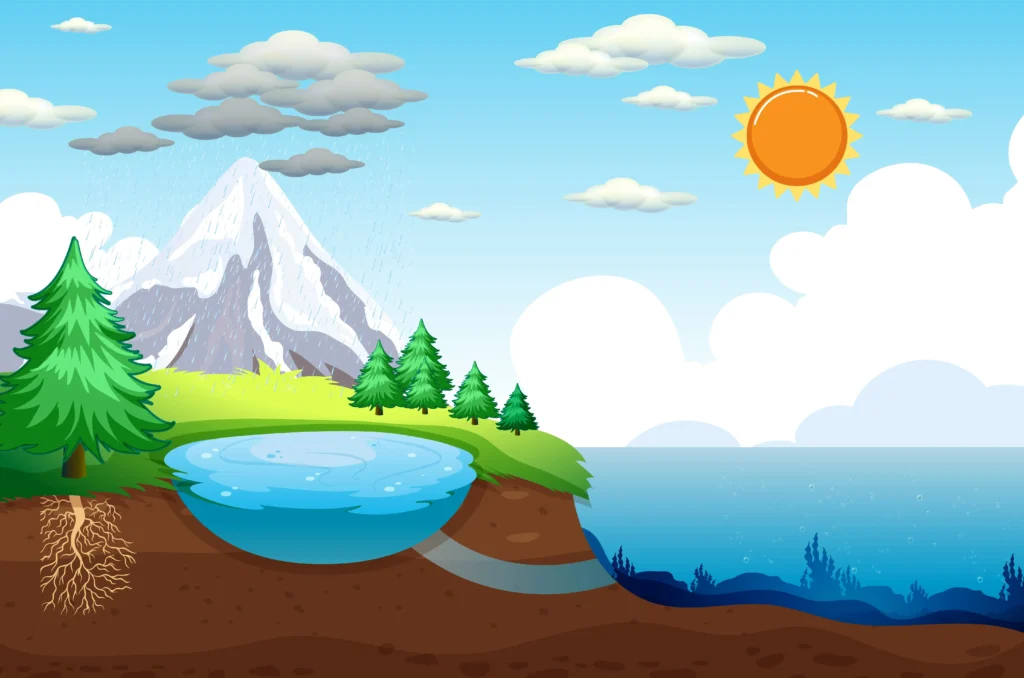Groundwater abstraction is a critical activity for several industries around the world. These industries rely heavily on groundwater due to various reasons such as the unavailability of surface water, the specific quality requirements of groundwater, and the relative cost-effectiveness of accessing it. Here are some of the key industries dependent on high groundwater abstraction:
- Agriculture
Agriculture is the largest consumer of groundwater globally. Farmers use groundwater for irrigation, especially in regions where surface water is scarce or unreliable. Groundwater provides a consistent water supply essential for growing crops, particularly in arid and semi-arid regions. Groundwater availability allows for the cultivation of water-intensive crops such as rice, sugarcane, and cotton, which are crucial for food security and economic stability in many countries. In addition to crop irrigation, groundwater is also vital for livestock farming, providing drinking water and maintaining pasture lands.
- Beverage Industry
The beverage industry, including the production of bottled water, soft drinks, and alcoholic beverages, relies heavily on high-quality groundwater. Groundwater is often preferred because it typically has lower levels of contaminants compared to surface water. Companies in this sector invest in wells to ensure a consistent and high-quality water supply, which is essential for product consistency and safety. For instance, breweries and distilleries require significant volumes of water for the production of beer and spirits.
- Mining
Mining operations often depend on groundwater for various stages of mineral extraction and processing. Groundwater is used in the extraction process to suppress dust, transport minerals, and process ores. In some mining activities, dewatering is necessary to lower the water table and allow access to mineral deposits. This requires substantial groundwater abstraction to keep mining areas dry and safe for operation. The dependence on groundwater is particularly pronounced in regions where mining activities are located far from surface water sources.
- Industrial Manufacturing
Many industrial manufacturing processes require substantial amounts of water, and groundwater is a crucial source for these needs. Industries such as textiles, chemicals, pharmaceuticals, and food processing use groundwater for cooling, washing, dilution, and as a raw material in production processes. For instance, the textile industry uses large volumes of water for dyeing and finishing fabrics. Groundwater provides a reliable and often cost-effective water source for these industrial activities.
- Power Generation
Power plants, especially those that rely on thermal processes such as coal, natural gas, and nuclear, require significant amounts of water for cooling purposes. Groundwater is often abstracted to meet these cooling water needs, especially in regions where surface water is limited. Hydroelectric power generation also relies on the availability of water, including groundwater, to maintain reservoir levels and ensure consistent power production.
- Construction
The construction industry frequently relies on groundwater for various activities, including concrete mixing, dust control, and site dewatering. In large construction projects, such as tunneling and building foundations, dewatering is essential to lower the groundwater level and keep the construction site dry. This requires continuous groundwater pumping, leading to high levels of abstraction.
- Tourism and Hospitality
The tourism and hospitality industry, particularly in areas with limited surface water resources, depends on groundwater for drinking water, swimming pools, landscaping, and recreational activities. Resorts, hotels, and golf courses often have their own wells to ensure a stable and high-quality water supply for guests.
Conclusion
Groundwater abstraction is vital for the functioning of various industries, each with unique water needs and challenges. While groundwater provides essential support for these industries, it also poses sustainability concerns. Over-extraction can lead to depletion of aquifers, reduced water quality, land subsidence, and ecological impacts. Therefore, it is crucial for industries to adopt sustainable groundwater management practices, invest in water-saving technologies, and explore alternative water sources to mitigate the adverse effects of high groundwater abstraction.
More on our YT channel and our website

